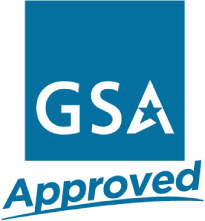Living with COPD: What Should I Discuss With My Doctor?
Posted by Julia Merrill on 30th Jan 2018

Living with COPD: What Should I Discuss With My Doctor?
Chronic obstructive pulmonary disease, more commonly known as COPD, is a diagnosis given to 12 million adults in the U.S., and an additional 12 million are thought to have undiagnosed COPD. In short, it is a very common disease, but awareness remains low, increasing the importance of discussing your COPD with your doctor to make sure you are tapping into all possible treatment options and getting the care you need.
What is COPD?
According to the U.S. Department of Health and Human Services, COPD is a progressive disease that makes it hard to breathe and involves symptoms such as a wet cough, wheezing, shortness of breath, and chest tightness. When you breathe, air travels through bronchial tubes in your lungs, which branch out into smaller tubes called bronchioles. Bronchioles end in round, air sacs, and as oxygen reaches them, the sacs stretch, inflate, and deflate like a balloon, allowing oxygen to pass through.
In patients with COPD, less air flows through the air sacs due to one or more of the following reasons:
The airways and air sacs have lost their elasticity
The walls between the air sacs have been destroyed or become thick and inflamed
The airways make more mucus than is necessary, leading to clogging
Although there is not a cure for COPD, there are treatments and medications available to help alleviate symptoms. In addition, there are certain lifestyle changes you can make to help you feel better and that slow the progression of the disease.
Do I Have to Tell My Doctor That?
COPD doesn’t have a cure, so it’s treatment involves addressing the symptoms. It is important that you are upfront and honest with your doctor about the medications you take as well as the food and drink you consume to avoid a possible drug interaction.
According to the FDA, drug interactions fall into three categories. Drug-to-drug interactions occur when two or more drugs react with one another and create a side effect such as dizziness or weight gain. It is possible that certain drugs may inhibit the effectiveness of other medications too, so let your doctor know all the medications you take, including vitamins and supplements, to ensure nothing interferes with your treatment. Drug-to-food-and-beverage interactions are common as well. For example, mixing alcohol with certain drugs could cause you to feel tired or slow your ability to react. When your doctor asks how often you drink alcohol or if you consume a particular food, they aren’t trying to pry. They are simply asking to avoid a potentially life-threatening reaction. The third type of drug interaction is a drug-to-condition interaction, which may occur when an existing medical condition makes particular medications harmful. To get the most benefit out of your COPD treatment, tell your doctor everything and become a team with a common goal – living a quality life with COPD.
Can I Still Do That?
Exercising offers benefits to patients with COPD such as symptom improvement, building energy levels so you can do more without becoming short of breath, and improving circulation to help the body make better use of the oxygen it takes in. However, it is important to ask your doctor what activities are both safe and healthy. The Cleveland Clinic suggests asking your doctor how much exercise you can do each day and week, what types of exercise to do, and what activities to avoid. For example, strengthening exercises for the upper body are helpful for people with COPD because it promotes the strengthening of the respiratory muscles, while aerobic exercise strengthen the heart, lungs, and increases the body’s capacity to use oxygen.
Be open and honest with your doctor, and formulate a plan for living with your COPD that meets your needs.Remember that they’re there to help you, and that the ultimate goal is to get the relief that you need.

